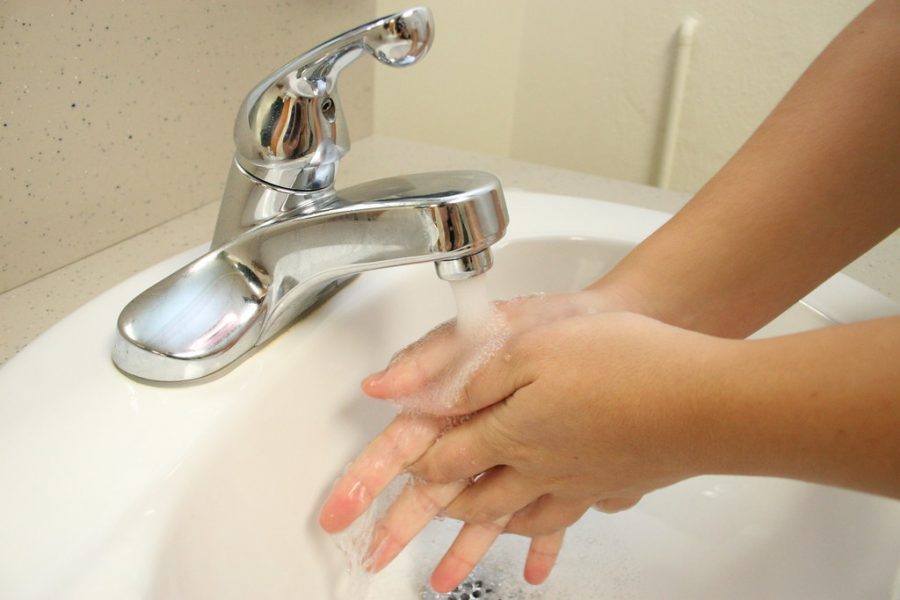Taking time for personal hygiene
Easy steps to fresher body, fresher life.
Researchers found that only two in three people use soap, while one in 10 skips the sink altogether, and men get much lower marks for hand hygiene than women, according to a study by Michigan State University
April 1, 2019
The act of maintaining personal hygiene may feel like a given, but in the teenage years laziness may overshadow the maintaining of personal hygiene.
According to Dettol, a cleaning products company, basic hygiene is essential not only for personal health, but also for everyday social interactions. When in a social situation, maintaining personal hygiene benefits not only the person, but also the people the person is interacting with.
Maintaining personal hygiene is relatively easy and basic. According to the CDC a very common act of personal hygiene is washing hands at appropriate times. For example before and after eating, after using the restroom, after coughing or sneezing and after being in contact with animals. Washing hands regularly not only prevents the person from the chance of getting ill, but also others in proximity.
When a person touches a doorknob, shakes someone’s hand or touches a surface that someone will later touch without washing hands the person is putting others at risk of getting sick due to the germs on the hand.
Another act to maintain personal hygiene is taking care of dental hygiene. According to Colgate Professional, the lack of taking care of one’s dental hygiene can have many detrimental risk factors. Some risks include the common cold, HIV, a fungus called Candida albicans, infections and a number of diseases.
To avoid these risk factors according to Mayo Clinic they recommend brushing teeth at least twice a day, flossing daily, maintaining a healthy diet, replacing toothbrushes every three to four months, going to the dentist regularly and avoiding tobacco based products. When people stop taking care of dental hygiene the whole body is at risk.
One of the most important acts of personal hygiene is washing and bathing. According to Hygiene Expert, it not only benefits personal hygiene it also boosts confidence, physical and emotional well being. There are certain situations where a bath is more beneficial or where a shower is the more beneficial option.
A bath is helpful for relaxing purposes and there are certain products such as bath oils and bath salts that can be added to help the skin. For example, the steam produced by the warm bath opens up pores and gives room to remove the dirt that clogged the pores earlier.
However, according to the CDC if the person is more dirty, like if soccer was played in the rain, went on a hike or did anything that causes a person to get sweaty and dirty, a shower is better so that dirt is not left on the skin as it would be if a bath was taken.
Some other beneficial habits according to Good Clean Love, would be to use products with a neutral pH so skin doesn’t dry out as much, moisturizing after bathing or showering, washing the face with a face wash during or after and rinsing out the bath after every use. Showering and bathing should occur once a day.
Some final ways to maintain personal hygiene according to the website Raising Children are regularly using deodorant, having clean clothes and knowing the difference between feminine and male hygiene needs. For example, due to different body parts women and men are at risk for different diseases or infections that can be prevented by maintaining personal hygiene and staying clean and healthy. Personal hygiene should be maintained everyday and considered a priority in everyday life.












